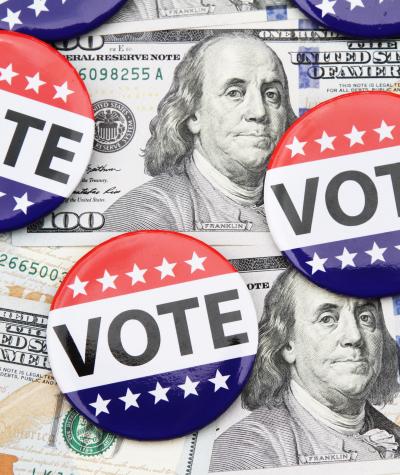Independent expenditure-only committees or “Super PACs” can raise unlimited funds from individuals, corporations, labor unions or other PACs to fund political actions, but cannot coordinate with or work directly with a candidate. In a previous article (click here is you would like to read that article) we discussed what a PAC is. A PAC and a Super PAC are two completely different animals.
Super PACs are a relatively new thing; formed after the Supreme Court Cases of Citizens United v. FEC and SpeechNow.org v. Federal Election Commission. In simple terms, the Citizens United ruling said that the first amendment applied to corporations, with the definition of a corporation including a labor union, non-profit and other associations. Prior to this, Unions could not give money to PACs because it would violate the Smith-Connally Act. The individuals could give money to a PAC, but the Union itself could not. The SpeechNow.Org ruling stated that Super PACs had to register and disclose its donors but that individuals could donate an unlimited amount to a Super PAC. Most have interpreted this ruling, due to the Citizens United ruling, to means that corporations can also give an unlimited amount to Super PACs.
Most Americans were made aware of Super PACs by Stephen Colbert when he created a Super PAC on his show, The Colbert Report called Americans for a Better Tomorrow, Tomorrow.
According to OpenSecrets.org as of August 22, 2020, 2,021 Super PACs have been collecting funds for this election cycle. These groups have received $1,254,822,626 and have spent $366,592,889.
What does a Super PAC even do? They can’t coordinate with or directly give money to a candidate? How are they a big deal?
Some Super PACs you may have heard of are The Lincoln Project, Senate Majority PAC, America First Action, or Everytown for Gun Safety Victory Fund.
I am going to use Everytown for Gun Safety as my example Super PAC. Everytown does not cordite its message with or support any specific candidate on its website or message. It doesn’t say “vote for” or “elect” in any of its messaging. But what it does do is launch ad campaigns against candidates.
Or they can support a candidate with out telling you to vote for them.
This above ad did not say the words “vote” or “elect” but highly implied that being a “gun sense voter” means voting for Joe Biden and Kamala Harris.
If we look at this ad from 2019 by Emily’s list, while it didn’t say “vote for” it said “elect” and showed the faces of different politicians. A Super PAC cannot tell you to elect anyone.
Just remember when you are looking at or seeing political ads this year, what are they suggesting? What are they implying? Who made the AD? Do your research and vote what you believe and not what the ads tell you to.



























